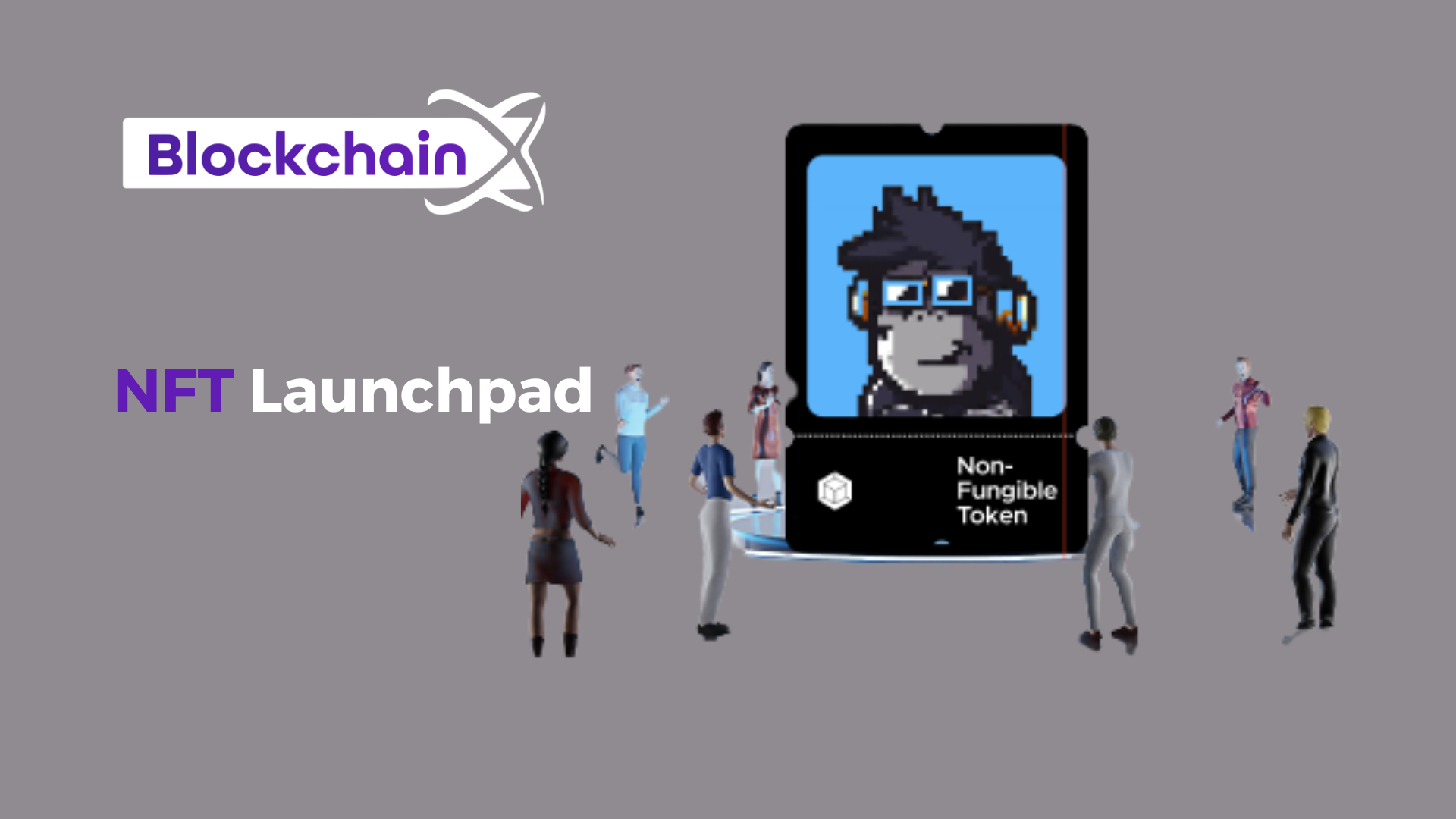What role does a launchpad for NFT play in the crypto ecosystem?
 kishore senthil
kishore senthil
What is Launchpad for NFT?
A launchpad for NFTs is a platform or service that facilitates the launch and promotion of Non-Fungible Token (NFT) projects. It acts as an intermediary between NFT creators, artists, and developers, and potential buyers, collectors, and investors in the crypto community. The primary purpose of an NFT launchpad is to provide a range of support services to NFT projects, making it easier for them to create, market, and sell their NFT collections. A launchpad for NFTs (Non-Fungible Tokens) plays a crucial role in the crypto ecosystem, particularly in the context of NFT projects and their initial offerings. Here are the primary roles and functions of a launchpad for NFTs:
Project Incubation: Launchpads act as incubators for NFT projects. They provide support, resources, and expertise to NFT creators and artists, helping them develop and launch their NFT collections. This includes guidance on tokenomics, smart contract development, and marketing strategies.
Fundraising and Token Sales: Launchpads facilitate the fundraising process for NFT projects by hosting initial NFT sales or auctions. This allows creators to raise capital for their projects while offering NFT enthusiasts the opportunity to purchase exclusive NFTs at an early stage.
Access to a User Base: Many launchpads have established communities and user bases of crypto enthusiasts and NFT collectors. NFT projects that partner with launchpads can tap into these communities to gain exposure and attract potential buyers and collectors.
Trust and Credibility: Being associated with a reputable launchpad can enhance the trust and credibility of an NFT project. Investors and collectors are more likely to participate in NFT sales and auctions that are conducted through well-known launchpads with a track record of successful projects.
Token Distribution: Launchpads often assist with the distribution of project-specific tokens or NFTs to early supporters, contributors, and investors. They may also help establish fair distribution mechanisms to ensure a wide and engaged user base.
Marketing and Promotion: Launchpads typically offer marketing and promotional services to NFT projects. This includes social media campaigns, influencer partnerships, and community building to generate buzz and interest around the project.
Due Diligence: Launchpads conduct due diligence on NFT projects before partnering with them. This process helps filter out potential scams and ensures that projects have a genuine and viable value proposition.
Secondary Market Liquidity: Some launchpads continue to support NFT projects by providing secondary market liquidity. This means they facilitate trading of NFTs on decentralized marketplaces, helping to maintain the market's health and liquidity.
Educational Resources: Launchpads often offer educational resources and materials to help NFT creators and users understand the technology, market dynamics, and best practices in the NFT space.
How NFT play in the crypto ecosystem
Non-Fungible Tokens (NFTs) have become a significant and transformative component of the crypto launchpad development, bringing new opportunities and use cases. Here's how NFTs play a role in the crypto ecosystem:
Digital Ownership and Provenance: NFTs represent ownership and provenance of unique digital or physical assets, allowing users to verify the authenticity and ownership history of these assets on the blockchain. This concept of digital ownership extends beyond cryptocurrencies like Bitcoin and Ethereum, which are fungible and interchangeable.
Digital Collectibles: NFTs have gained popularity as digital collectibles. They enable users to collect and trade unique digital items, such as artwork, trading cards, virtual real estate, and virtual pets, providing a new dimension to online hobbies and interests.
Art and Creativity: NFTs have revolutionized the art world by allowing artists to tokenize their creations and sell them directly to collectors without the need for intermediaries. This has created new opportunities for artists and expanded the art market into the digital realm.
Gaming and Virtual Worlds: NFTs are used in gaming and virtual worlds to represent in-game assets, characters, skins, and virtual real estate. Players can buy, sell, and trade these assets both within and outside the game's ecosystem, fostering a secondary market for virtual items.
Music and Entertainment: Musicians and entertainers are exploring NFTs as a way to sell exclusive music tracks, concert tickets, and limited-edition content directly to their fans. NFTs can also provide a revenue stream for content creators and influencers.
Real-World Assets: NFTs can represent ownership of physical assets, such as real estate, luxury goods, and collectibles. This opens up opportunities for fractional ownership and easier transfer of these assets.
Decentralized Finance (DeFi): NFTs can be used as collateral in DeFi protocols, allowing users to borrow against their NFT holdings or earn yield by providing NFT liquidity to lending platforms. This bridges the gap between NFTs and the broader DeFi ecosystem.
Digital Identity and Authentication: NFTs can serve as a means of proving digital identity or authenticating ownership of digital accounts and assets. This can help combat fraud and identity theft.
Blockchain Adoption: NFTs have contributed to increased blockchain adoption and awareness. Many individuals who were previously unfamiliar with blockchain technology have become interested in NFTs, leading to a broader understanding of decentralized systems.
Environmental Concerns: NFTs have also brought attention to environmental concerns due to the energy-intensive nature of some blockchain networks, like Ethereum. This has led to discussions and innovations aimed at making NFTs more eco-friendly.
In summary, NFTs play a multifaceted role in the crypto ecosystem by expanding the use cases of blockchain technology beyond traditional cryptocurrencies. They offer unique opportunities for creators, collectors, gamers, artists, and investors, while also raising important questions about ownership, authenticity, and environmental sustainability. The NFT space continues to evolve, and its impact on the broader crypto ecosystem is likely to grow in the coming years.
Subscribe to my newsletter
Read articles from kishore senthil directly inside your inbox. Subscribe to the newsletter, and don't miss out.
Written by

kishore senthil
kishore senthil
Enterprise blockchain development involves leveraging blockchain technology to create tailored solutions for businesses. Unlike public blockchains, enterprise blockchains are often permissioned, allowing designated participants control over access and governance.